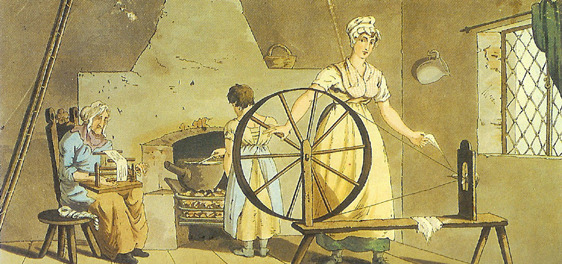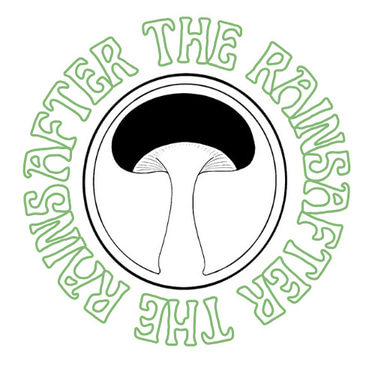Psychedelic Retreats as a Cottage Industry
Presenting the case for not being too professional


For a while now I have wanted to write a piece about retreats as a cottage industry. I'm not sure why I've been finding it difficult, but it seems to be getting in the way of other pieces of writing I would like to do, so I am going to try to give it a shove and blurt something out.
A cottage industry is a pre-industrial approach to manufacture. Picture a man sat at a hand-loom in the living room of his home of an evening weaving a piece of cloth that he will use both to cloth his family and also to earn some money by selling the surplus. It is integrated into the variety of tasks that he performs each day, some of which maintain the home, some of which earn money, some of which provide food.
The industrial revolution changed all that. The manufacturing process was taken out of the home and put into the factory, where it was carried out at scale with the primary intention of generating capital. It was all about scale and efficiency and specialisation. The more things could be scaled-up, the better, more units of production meant more profit and that was, after all, the goal driving the entire process.
The rest of the story is familiar to most of us. It is the story of capitalism and now more than ever we live under the spell of its basic assumptions and ways of operating. To start a business is a wonderful thing. It provides a service, it fulfils a need, gives people a goal. But we often fall under the spell of this industrial way of thinking- how can we scale it up? How can we improve efficiency? How can we maximize profitability?
And I see the same thing happening in the world of psychedelics in general and the field of psychedelic retreats in particular. How can we scale it up? How can we streamline it? How can we reach more people? And implicit in these questions, how can we make more money? This is most obvious in the business model of certain large retreat and psychedelic training companies that have been very focused on becoming market leaders in the sector, and whose websites bear the unmistakable mark of corporate-speak, although it applies to anyone who's primary focus has become generating revenue or growing the business. I don't doubt that most of the people who work for these sorts of companies are sincere in their desire to spread the benefits of psychedelics and even that the corporate bosses believe their own narrative of doing good in the world at scale. Nevertheless, the business model is unmistakable and is surely informed by a way of thinking and behaving that needs to be challenged and transformed. I don't know if Einstein really said that the problems of the world cannot be changed using the way of thinking that created them in the first place, but I think the quote is absolutely applicable in this case.
And for that reason, I feel that the pre-industrial model of the cottage industry provides a good model for how psychedelic retreats might best be run on a more human scale. At After the Rains we have no intention of scaling up. We are two people, Carla and Oliver, who work other jobs. We run a handful of retreats each year in addition to perhaps one one-to-one session a month. We are pleased for the extra income that this provides us with and we make sure that we charge enough to feel rewarded for the considerable effort and time involved in organising and running these events. But where we put our energy is not in growing the business but in creating the conditions, from the first contact through to the post-event integration call, in which each of the participants feel fully-accompanied. We don't claim to be professional or try to cultivate a professional attitude. Rather we aim to be present as the people who we are whilst acting with skill, empathy and authenticity.
A certain alchemy takes place in a retreat. Despite all the planning that is done in advance, it is only when the group has gathered that the direction that the retreat is going to take truly starts to take shape. This is because we are all co-creators of the retreat. That first afternoon, everyone feels the goodwill that pervades the group and starts to let their guard down. People feel safe and supported, but also the freedom to be fully present. Over-organisation, standardisation or too much professional distance can all stifle this alchemy. It can't be planned, rather it emerges when people respond to each other with authenticity and respond to each particular situation as it unfolds
That and the mushrooms... the mushrooms definitely focus the attention.


